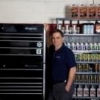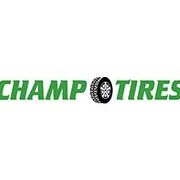A Woman, a Car and a Mattress - A TRUE STORY
-
Have you checked out Joe's Latest Blog?
-
By Joe Marconi in Joe's Blog5 commentsI recently spoke with a friend of mine who owns a large general repair shop in the Midwest. His father founded the business in 1975. He was telling me that although he’s busy, he’s also very frustrated. When I probed him more about his frustrations, he said that it’s hard to find qualified technicians. My friend employs four technicians and is looking to hire two more. I then asked him, “How long does a technician last working for you.” He looked puzzled and replied, “I never really thought about that, but I can tell that except for one tech, most technicians don’t last working for me longer than a few years.”
Judging from personal experience as a shop owner and from what I know about the auto repair industry, I can tell you that other than a few exceptions, the turnover rate for technicians in our industry is too high. This makes me think, do we have a technician shortage or a retention problem? Have we done the best we can over the decades to provide great pay plans, benefits packages, great work environments, and the right culture to ensure that the techs we have stay with us?
Finding and hiring qualified automotive technicians is not a new phenomenon. This problem has been around for as long as I can remember. While we do need to attract people to our industry and provide the necessary training and mentorship, we also need to focus on retention. Having a revolving door and needing to hire techs every few years or so costs your company money. Big money! And that revolving door may be a sign of an even bigger issue: poor leadership, and poor employee management skills.
Here’s one more thing to consider, for the most part, technicians don’t leave one job to start a new career, they leave one shop as a technician to become a technician at another shop. The reasons why they leave can be debated, but there is one fact that we cannot deny, people don’t quit the company they work for, they usually leave because of the boss or manager they work for.
Put yourselves in the shoes of your employees. Do you have a workplace that communicates, “We appreciate you and want you to stay!”
-
-
Similar Topics
-
By carmcapriotto
Thanks to our Partner, NAPA Auto Care Andy Bizub explores the influential book "Driving Force: Extraordinary Results with Ordinary People" by Peter Schultz. Dive into the pivotal role of culture in business success with personal insights on maintaining a positive work environment. This episode is packed with wisdom for business owners and leaders seeking to improve their operations and team dynamics. Andy Bizub, Midwest Performance Cars, Chicago and Northbrook, IL. Andy’s previous episodes HERE. Show Notes
Email Lori Schutz for your copy of "The Driving Force: Extraordinary Results with Ordinary People": [email protected] Leadership Book Insights (00:02:07 ) Exploring 'The Driving Force by Peter Schutz's' perspectives on leadership and empowerment. Book's Business Influence (00:03:04) The book's influence on leadership strategies and business operations. Book Discussion (00:05:35) Diving into the book's content and its effects on businesses. Cultural Preservation (00:06:34) The role of culture in maintaining successful business practices. Toxic Employees (00:10:41) Addressing the challenges of toxic employees in the workplace. Empowering Leadership (00:12:14) How leaders can empower their employees to achieve excellence. Employee Growth (00:13:27) Encouraging employees to grow and potentially outperform their leaders. Team Diversity (00:15:27) The benefits of having a diverse and skilled team. Overcoming Barriers (00:18:39) Sharing a story about overcoming barriers at Cummins Engine and its relevance to shop communication. Communication Barriers (00:20:04) The effects of cultural and physical barriers on shop communication. Slack for Shop Communication (00:22:31) Using Slack to improve communication and reduce barriers in the shop. Customer Quality (00:23:42) The impact of customer quality on business success. Customer Vetting (00:29:58) Identifying red flags and conveying service value to potential customers.
Thanks to our Partner, NAPA Auto Care Learn more about NAPA Auto Care and the benefits of being part of the NAPA family by visiting https://www.napaonline.com/en/auto-care Connect with the Podcast: -Follow on Facebook: https://www.facebook.com/RemarkableResultsRadioPodcast/ -Join Our Private Facebook Community: https://www.facebook.com/groups/1734687266778976 -Subscribe on YouTube: https://www.youtube.com/carmcapriotto -Follow on LinkedIn: https://www.linkedin.com/in/carmcapriotto/ -Follow on Instagram: https://www.instagram.com/remarkableresultsradiopodcast/ -Follow on Twitter: https://twitter.com/RResultsBiz -Visit the Website: https://remarkableresults.biz/ -Join our Insider List: https://remarkableresults.biz/insider -All books mentioned on our podcasts: https://remarkableresults.biz/books -Our Classroom page for personal or team learning: https://remarkableresults.biz/classroom -Buy Me a Coffee: https://www.buymeacoffee.com/carm -The Aftermarket Radio Network: https://aftermarketradionetwork.com -Special episode collections: https://remarkableresults.biz/collections
Click to go to the Podcast on Remarkable Results Radio
-
By champtires
Premium Member Content
This content is hidden to guests, one of the benefits of a paid membership. Please login or register to view this content.
-
By carmcapriotto
Nichole Bennecoff and Tenise Chapman are steering the automotive conversation toward new horizons. We're shifting gears to talk about the power of female presence in the industry, from technicians to service advisors, and the impact it has on businesses and customers alike. Nichole shares her success in creating a team dynamic that's as inclusive as it is efficient. She's proving that leadership knows no gender, and her approach is magnetizing more women to the field. Tenise drives home the importance of visibility. She's out there in a rural setting, changing the landscape and inspiring the youth to dream of a career in automotive with Camp Drive, a two-day camp for kids ages 12-15. We also touch on the art of customer service, crafting spaces that make everyone feel welcome, and the quest to bring more female technicians into the fold. Nichole Bennecoff, Subie Guys, Traverse City, MI. Nichole’s previous episodes HERE Tenise Chapman, Black Hills Tire, Rapid City, SD
Show Notes: Recruiting Women Employees (00:01:04) Discussion on the importance of recruiting women employees, including female technicians and service advisors, and the need to promote careers in the automotive industry. Building a Female Team (00:02:18) Nichole shares her experience in building a female team at her shop and the reasons why women were attracted to her business. Women in the Automotive Industry (00:03:46) Tenise reflects on her experience as a woman owner in a male-dominated industry and the lack of female representation in her local area. Creating a Welcoming Environment (00:06:25) The importance of creating a welcoming and professional environment for customers, including the design and atmosphere of the waiting room. Customer Experience and Image (00:08:28) Discussion on the customer experience, including the quality of coffee, and the impact of small details on the overall image of the shop. Maintaining High Standards (00:11:53) The importance of maintaining high standards and the pride that staff takes in upholding the cleanliness and professionalism of the shop. Recruiting Female Technicians (00:12:55) Efforts to promote the recruitment of female technicians, including outreach to younger girls and the challenges faced in a traditional rural area. Work-Life Balance (00:14:19) Considerations for implementing a four-day work week to accommodate employees, especially women with families, and attract more people to the industry. Promoting Careers in the Automotive Industry (00:17:40) Efforts to promote careers in the automotive industry, including speaking engagements at career fairs and middle schools to change perceptions about the industry. Educational outreach (00:18:14) Discussion about the need for more technicians and efforts to promote automotive education in high schools. Maternity leave policy (00:20:59) Challenges and insights into creating a maternity leave policy for female employees in the automotive industry. Uniform policy (00:22:42) Discussion on the uniform policy for female employees and the need for a more inclusive approach. Workplace culture and retention (00:25:26) The importance of creating an inclusive and supportive workplace culture, especially for female employees, to promote retention. Family-friendly workplace (00:27:01) Emphasizing the importance of supporting employees' personal and family needs in the workplace. Thanks to our Partners Shop-Ware and Delphi Technologies Shop-Ware: More Time. More Profit. Shop-Ware Shop Management https://getshopware.com/ Delphi Technologies: Keeping current on the latest vehicle systems and how to repair them is a must for today’s technicians. https://www.delphiautoparts.com/ Connect with the Podcast -Follow on Facebook: https://www.facebook.com/RemarkableResultsRadioPodcast/ -Subscribe on YouTube: https://www.youtube.com/carmcapriotto -Follow on LinkedIn: https://www.linkedin.com/in/carmcapriotto/ -Follow on Instagram: https://www.instagram.com/remarkableresultsradiopodcast/ -Follow on Twitter (X): https://twitter.com/RResultsBiz -Join our Insider List: https://remarkableresults.biz/insider -All books mentioned on our podcasts: https://remarkableresults.biz/books -Our Classroom page for personal or team learning: https://remarkableresults.biz/classroom -Buy Me a Coffee: https://www.buymeacoffee.com/carm -The Aftermarket Radio Network: https://aftermarketradionetwork.com -Special episode collections: https://remarkableresults.biz/collections
Click to go to the Podcast on Remarkable Results Radio
-
By carmcapriotto
"40 plus years in business and we had zero money in the bank." Bret shares his journey from struggling to successful business owner, emphasizing the importance of seeking outside help and continuous learning. He discusses the transformation of his business into a profitable venture with the help of a coaching company and the implementation of key profit indicators. Brett also highlights the significance of team training and understanding generational differences in the workplace. Bret Fadley, Fadley's Auto Masters & Tires, York, PA. Show Notes:
The rule of holes (00:03:00) Bret discusses the rule of holes and knowing when to stop digging. Struggling to save the business (00:03:29) Bret talks about the challenges his family's business faced after his mom passed away and left zero money in the bank. Turning the business around (00:06:08) Bret shares his resolve to turn the business around, pay off debts, and seek outside help through coaching to achieve profitability. Learning to run a business (00:12:04) The importance of getting outside help to learn how to run a business. The importance of team building through training events (00:16:48) Discussing the investment and decision to take the whole team to major training events for team building and a happier work environment. Understanding and adapting to the younger generation (00:17:52) Sharing the experience of attending a seminar with Sara Fraser on getting to know Gen Z and millennials and the importance of adapting to their work style and slang. The need to attract and encourage younger people in the automotive industry (00:20:28) Highlighting the importance of changing and adapting the industry to attract the next generation and addressing the tech shortage. Thanks to our Partner, Dorman Training. Training technicians today for the challenges of tomorrow! https://www.dormantraininglive.com/
Connect with the Podcast:
-Follow on Facebook: https://www.facebook.com/RemarkableResultsRadioPodcast/ -Follow on YouTube: https://www.youtube.com/carmcapriotto -Follow on LinkedIn: https://www.linkedin.com/in/carmcapriotto/ -Follow on Instagram: https://www.instagram.com/remarkableresultsradiopodcast/ -Follow on Twitter: https://twitter.com/RResultsBiz
-Join our Insider List: https://remarkableresults.biz/insider
-All books mentioned on our podcasts: https://remarkableresults.biz/books
-Our Classroom page for personal or team learning: https://remarkableresults.biz/classroom
-Buy Me a Coffee: https://www.buymeacoffee.com/carm
-The Aftermarket Radio Network: https://aftermarketradionetwork.com
-Special episode collections: https://remarkableresults.biz/collections
Click to go to the Podcast on Remarkable Results Radio

-
By Changing The Industry
Episode 142 - Defying The Odds & Forging New Paths With Ford Boss Me: Rich Poisso
-
-
-
Our Sponsors





.thumb.jpg.2b345efc275b9df0af2bbb306a10a78a.jpg)













Recommended Posts
Create an account or sign in to comment
You need to be a member in order to leave a comment
Create an account
Sign up for a new account in our community. It's easy!
Register a new accountSign in
Already have an account? Sign in here.
Sign In Now